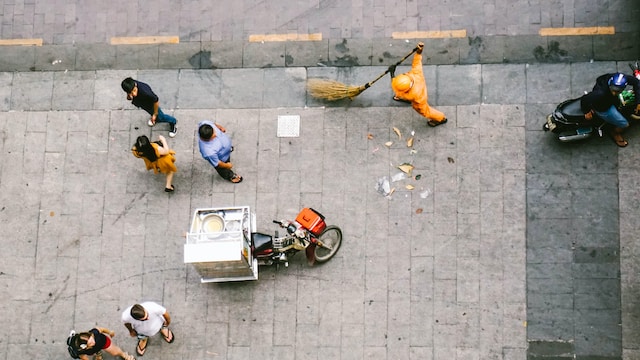Street sweeping helps to reduce the amount of pollution that enters urban waterways. Pollutants from roads, sidewalks, and parking lots are carried by rainwater over paved surfaces and into our streams and rivers.
Street sweeping removes debris, sediment and pollutants that could otherwise clog stormwater drains and cause urban flooding. Street sweeping is considered the first defense for preventing pavement-based pollution runoff.
Clean Streets
Street sweeping Everett removes dust and debris from city streets, reducing environmental and health problems caused by excess air pollution. It also reduces the amount of sediment that clogs catch basins and washes into nearby water bodies, a significant source of pollution to lakes, rivers, and streams.
Without regular street sweeping, litter, pesticides, oil and grease, sediment, chemicals, heavy metals, trash, and other pollutants accumulate on roads and urban surfaces. When it rains, these substances wash into storm drain systems and co-mingle with waterways. Street sweeping is the first line of defense, keeping these substances out of stormwater runoff and receiving water bodies.
Besides reducing risks to public safety and property values, clean areas create a positive impression of neighborhoods and business districts. This inspires citizens to do their part to keep their communities and surroundings clean. Local governments spend millions on street sweeping and other best management practices to reduce toxic stormwater pollution. Moreover, they spend billions on projects like separating sewer lines from stormwater pipes, greening the built environment, saving salmon, and redressing environmental injustices.
Clean Water
Keeping streets clean is crucial to reducing the pollutants that wash into our rivers, lakes, and streams during rain events. These pollutants include pesticides, oil and grease, yard clippings, metals, and sediment. Street sweeping removes these materials and prevents them from washing into storm drains, where they can enter the environment and impact water quality.
Regular street sweeping also helps reduce the risk of localized flooding during heavy rain events. Accumulated debris and sediment can clog stormwater drainage systems, causing flooding and property damage. Street sweeping helps keep these drainage systems clear so that water can flow freely from urban areas during rainstorms.
Residents can help to ensure that streets are properly swept by moving their vehicles during sweeping times. Cars should be parked off-street to allow for better sweeping and removal of large piles of leaves and other materials. Additionally, please trim vegetation on your private property so it does not hang over into the street and block sweeping access.
Clean Air
Air pollutants wash off roads and other impervious surfaces during rainstorms in urban areas. These contaminants include pesticides, fertilizers, motor oil and yard clippings. These chemicals and other debris are washed into storm drains and local waterways, harming wildlife and entering our water supply. Street sweeping prevents the build-up of these harmful pollutants and keeps our streets clean.
Residents can help by moving their vehicles on street sweeping days. This is the most effective way to support the City’s effort to reduce toxic pollution in our waterways.
Trees and other too-low or overgrown vegetation can prevent a street sweeper from cleaning the entire roadway. Residents are encouraged to move litter, grass clippings, leaves and other yard waste into garbage or green waste containers instead of sweeping them into the street. In addition, dripping or leaking roofs, over-watered landscaping and parked cars washing into gutters can contribute to pollution.
Healthy Communities
Keeping dirt and debris off our streets prevents slip-and-fall accidents and other health problems. It’s also important for the visual appeal of our neighborhoods and business districts. Clean streets enhance the quality of life and create a sense of pride in the community.
Street sweeping also improves stormwater quality by reducing the pollutants that runoff carries into rivers, creeks, and lakes. As rainwater or snow melt flows off of paved surfaces like roads and parking lots, it can pick up oil, chemicals, dirt, fertilizers, grass clippings and other debris. The resulting Total Maximum Daily Load (TMDL) can negatively affect water quality and hurt aquatic ecosystems.
Everyone can help make our street sweeping program most effective by knowing their comprehensive day and moving their cars from posted no-parking areas during exhaustive hours. Please check the total schedule to see when your neighborhood is scheduled. Also, residents can assist by trimming overgrown trees and removing trash bins from curbs during sweeping days.
